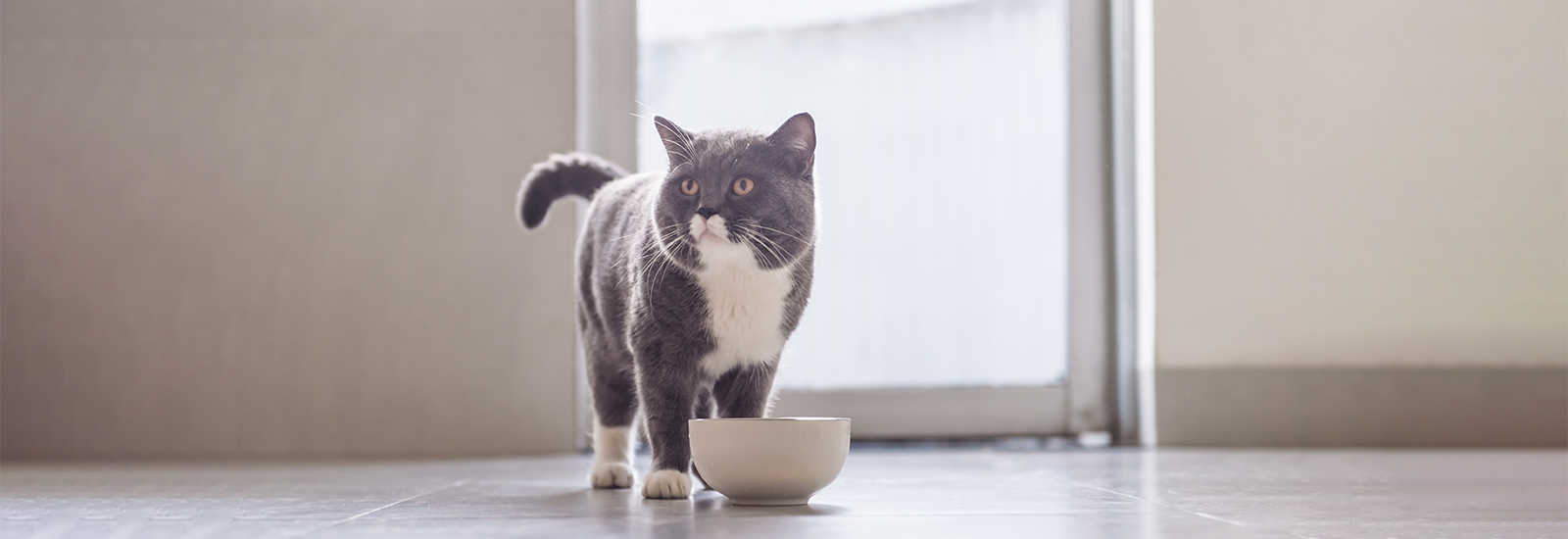Constipation in cats
The cause of constipation in cats can be, among other things, hairballs, obesity, stress, or an illness. Home remedies such as vegetable oil, milk, liver and malt paste as well as a change in diet can help to relieve mild constipation in cats. If, however, the problem continues, you should take your cat to the vet.
Symptoms: How can I tell if my cat is constipated?
If you have an indoor cat, it is relatively easy to tell whether your pet is suffering from constipation. This can be done simply by checking the litter tray regularly. It is, however, far more difficult to check on cats that are allowed outdoors and rarely use the litter tray. It is important to keep a closer eye on them.
The following symptoms may indicate that your cat is constipated:
- Reduced amount of faeces in the litter tray
- Frequent visits to the litter tray without success
- Faeces are harder than usual
- Faeces are not elongated, but rather lumpy
- Faeces may be a different colour
- Firm, tense abdomen
- Arched back
- Cat does not like its tummy being touched
- Restless behaviour
- Loss of appetite
- Meowing in pain
- Weight loss
Causes: Why do cats become constipated?
Constipation is not something you should take lightly! If your cat is suffering from constipation, you should find out what is causing it. One possible reason can be hairballs in the gastrointestinal tract. Long-haired cats in particular can swallow large quantities of fur when they lick themselves during moulting. Some of these are excreted in the faeces or vomited up by the cat. However, if this is not achieved in sufficient quantities, constipation can occur. You can remedy this by giving your cat a thorough combing.
Diet can also be a cause of constipation in cats. It is important that cats do not become overweight, as this is usually associated with reduced activity, which has an impact on bowel function. The cat’s food can also be the cause of constipation: If cats drink too little and are only given dry food, this can lead to problems. Try placing several water bowls around your home, none of which should be directly next to the food bowl because many cats will not like this. A drinking fountain can also encourage a cat to drink. It is also advisable to give your cat at least some wet food. This will automatically provide your pet with more liquid.
Various illnesses can also lead to constipation. It is therefore important to have this checked by a vet. Causes can include a tumour, a pelvic fracture, chronic renal insufficiency or diabetes. Mental stress in the home environment, side effects of medication, cat litter in the stomach or a swallowed object are also possible causes of constipation.
My cat has constipation: when should I take it to the vet?
It is not unusual for the frequency of a cat’s faeces and the amount a cat produces when it is on the litter tray to fluctuate slightly. In general, cats go to the toilet once a day. It is also perfectly normal if this happens twice daily or even occasionally not at all. Most cats have their own particular rhythm. As a cat owner, you will be familiar with this and usually quickly realise when any irregularity occurs. If things settle down again after a day or two and your cat is behaving normally, there is usually no cause for concern. If, however, the symptoms continue for an extended period of time or reappear, it is important to take your cat to the vet.
When a vet examines a cat for constipation, they assess the severity in three steps:
- Mild constipation
The cat has difficulty defecating. This only happens infrequently and causes pain. The food accumulates in the large intestine.
- Chronic constipation
Persistent, severe problems with defecation. While occasional mild constipation can occur for a number of reasons, chronic constipation is very likely to have a specific cause. At this stage, there will already be a loss of function in the gastrointestinal tract.
- Severe constipation (faecal impaction)
If faeces are no longer transported from the large intestine, this is a life-threatening condition. Immediate intervention is necessary to prevent an intestinal obstruction. At this stage, irreparable organ damage often occurs.
What does a vet do when a cat has constipation?
Constipation can have a number of different causes. If you think you may know what the problem could be, let the vet know. Among other things, the type of diet the cat has, psychological stress or a past illness can be important. The vet will examine the cat thoroughly and may carry out a blood and faecal examination. A palpation of the abdomen, x-rays and an endoscopic examination can also provide information. The diagnosis will determine the possible treatment. This may include, for example, a change in diet or taking certain medications.
Depending on how severe the constipation is, the vet may only need to administer a mild laxative. If the constipation is at an advanced stage, it may be necessary to carry out a colonic irrigation or an enema. In serious cases, an operation may also be the only option, for example if a foreign body or tumour has been found.
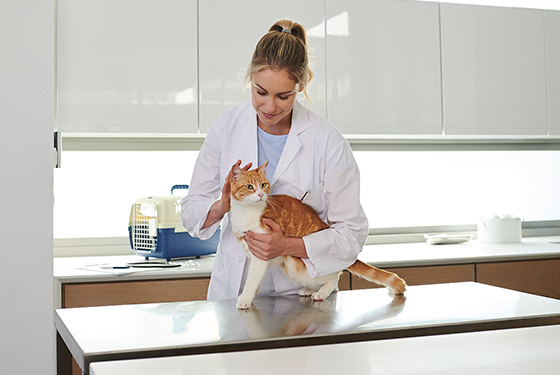
Relieving constipation – what home remedies can help?
If your cat occasionally has slightly firmer stools, there are some home remedies you can use to try and treat this. However, please be aware that if the problem continues, a visit to the vet is essential. If in the case of mild constipation you would first like to test a home remedy, you can try the following (in small doses):
- Vegetable oil
- Milk / condensed milk
- Cream
- Soaked psyllium seed husks
- Butter
- Raw liver
- Malt paste
- Lactulose syrup
- High-quality wet food with a high meat content
- Massage of the abdomen
You may also like this
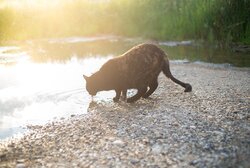
Kidney problems in cats
If its urine shows abnormalities, your cat should be examined
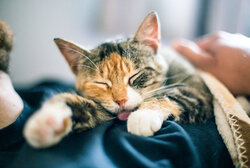
My cat isn’t drinking
Find out if your cat is not drinking enough
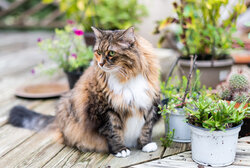
Excess weight in cats
If a cat weighs too much, there is the risk of health problems
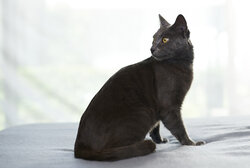
Diabetes in cats
Cats too can suffer from elevated blood sugar levels
